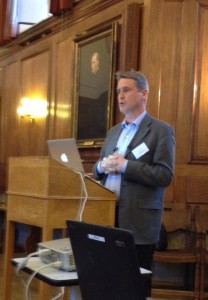Harvard University’s statement that its library would no longer purchase some particularly costly journals, and its encouragement to its academics to submit to open access journals, is a real milestone. As the memo notes:
“Prices for online content from two providers have increased by about 145% over the past six years, which far exceeds not only the consumer price index, but also the higher education and the library price indices…… Profit margins of 35% and more suggest that the prices we must pay do not solely result from an increasing supply of new articles.”
As others have noted – including mathematician Tim Gowers, whose Cost of Knowledge initiative was discussed in John Naughton’s Observer column on Sunday – a small number of major academic publishers are exploiting monopoly power to increase margins and thereby damaging scholarship and the exchange of ideas.
In economics, the situation is not so acute as in the natural sciences. Many major journals are published by professional associations, there are thriving working paper platforms and publishers, and there is also healthy access and public debate on key economics blogs. Still, the principle of open access to research largely already funded by the public is important.
The interesting thing about the monopoly power of the major journal publishers is that it relies on the consent of scholars about the identity of the major journals. It has been so persistent because changing this identification requires a collective consent about new locations for publishing important peer-reviewed work.
So other universities must now support Harvard by following suit in the buyers’ strike. And academics will need to accept other journals or publishers as validating scholarly quality. In the UK this needs to happen through the REF, so I hope REF subject committees will adopt an open access bias. It is clear that in economics the range of journals is too narrow anyway, and excludes a lot of the very high quality applied micro research that is taking place. It would also really help if research funders required any work resulting from their funding to be open access. So there is quite a lot of institutional change needed. Still, everyone who cares about either the realm of ideas or monopoly-busting will be cheering Harvard’s Faculty Advisory Council.
Here are some other comments on the Harvard move – The Atlantic, Ars Technica, Cory Doctorow on Boing Boing.

Knowledge is infinitely expansible
“He who lights his taper at mine, receives light without darkening me.” Thomas Jefferson, 1813.

